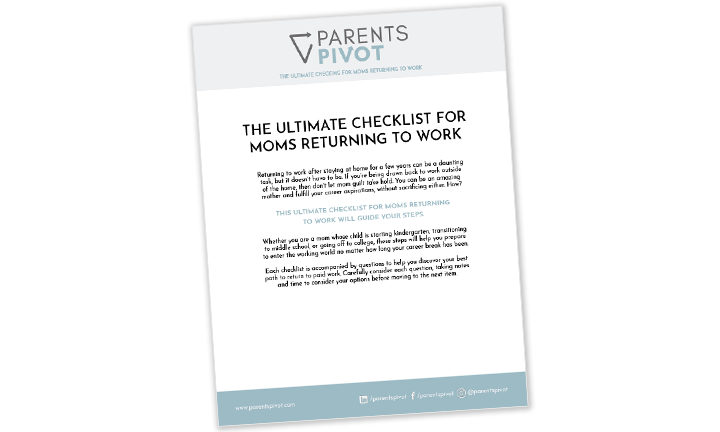If you’re a mom, you are no stranger to research. From the moment you found out you were expecting, you have likely spent countless hours poring over information in order to make the best choices for your kids. Birthing methods, feeding plans, parenting techniques, and schooling choices are only a few of the many decisions parents face. Not to mention choosing between all the myriad options available for things like car seats, strollers, and high chairs, oh my!
Then there are the issues that pop up that you never saw coming. Perhaps ones you never even knew existed! From major crises like medical issues and injuries to the everyday snags that are regular occurrences in life with kids, parents encounter problems that need solving nearly every day.
Whether you realize it or not, in researching and choosing the best options for your kids, you are using valuable skills that are highly sought-after in the workplace. Many managers report having a hard time finding people skilled in research and problem solving, so these skills make you a valuable asset. If you are considering returning to work after a career pause, use this to your advantage.
As you prepare your resume and cover letter, be sure to include research and problem solving in your list of skills. Once you land an interview, use the following talking points to show potential employers how the ability you’ve honed as a mom to find and implement solutions makes you an asset they don’t want to miss.
Positioning Research and Problem Solving As Valuable In The Workplace
Are you good at researching the issues and decisions you face every day as a mom? Do you know how to recognize a problem and identify what needs to be done to address it? These transferable skills are not only valuable to your family - they can also be put to great use in the workplace!
Here are a few ways you can position the research and problem solving skills you’ve developed in your mom life into a valuable asset a potential employer would love to have:
You are skilled at identifying problems and needs.
Think of all the decisions you have had to make as a mom, starting before your kids were even born. From crazy issues that can arise during pregnancy to safety concerns, illnesses, care methods, and parenting matters every year after, you tackle them all. In order to find solutions, however, you first have to identify the problems that need to be addressed and needs that must be met. In the workplace, this finely-honed skill of recognizing when something is not right or not working well and pinpointing the source of the problem will help you provide valuable solutions for your company.
You know how to track down answers (and you don’t stop until you do).
There are few more motivated forces than a mama bear with a problem to solve. Think about how many late nights you’ve spent consuming the latest pediatric research or reading reviews of every piece of baby gear on the market. Whether it’s medical symptoms, behavioral issues, or childhood development stages, you know how to find answers to your questions, and you leave no stone unturned until you do. This dedication to research and problem solving will benefit future employers as you turn your focus and motivation toward meeting their needs.
You can compare options and choose the best solution.
When it comes to parenting issues, the problem is often not a lack of viable solutions but rather a slew of (often conflicting) options to sift through and evaluate. As a mom, you have become skilled at comparing various courses of action and choosing the best one for your family’s particular make-up, values, and lifestyle. This skill will carry over into the workplace as you evaluate possible solutions and find ones that best align with your company’s values, resources, and goals.
You won’t be thrown by unexpected problems.
As a parent, you learn to expect the unexpected. You plan and prepare as much as possible, but surprise issues constantly pop up that require quick action. As mentioned in the adaptability and agility post, these curveballs don’t faze you. Not only do you know how to research the decisions you see coming, but you also know how to do it on the fly. This skill of batting unexpected pitches with competence and ease will help you rise to new challenges in the workplace as adeptly as you have at home.
Other Mom Transferable Skills
Research and problem solving are just the tip of the iceberg when it comes to transferable mom skills. When preparing your resume, cover letter, and interview talking points, consider your other mom skills, such as adaptability and agility, strategic thinking, communication, and organization. For even more mom skills that transfer to the workplace, click here.
Need Support Returning To Paid Work?
The summer is coming to a close, and school will be back in session before we know it. As you think about your kids going back to school, you may be thinking about going back to work yourself. If so, Parents Pivot is here to help! Set up a coaching session with Anna for customized support working through this stage of your transition, and consider joining our next THRIVE group coaching session to gain confidence, clarity, and community as you return to paid work.









